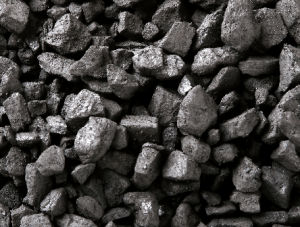African countries make case for coal in Bali
 African countries at the recent meetings of the International Monetary Fund and World Bank in Bali made a strong case for the use of coal to power their development, according to Bank President Jim Yong Kim.
African countries at the recent meetings of the International Monetary Fund and World Bank in Bali made a strong case for the use of coal to power their development, according to Bank President Jim Yong Kim.
During the meetings on the Indonesian island, Mr Kim said that he was approached by officials from developing countries, mainly from Africa, who talked about the Bank’s reluctance to fund coal-powered plants that would provide more electricity for countries that are facing huge power shortages that are stunting their development
Mr. Kim said he was told that he was asking African countries, “which have put almost none of the carbon in the air” not to have baseload electricity.
He said African delegates argued that their countries could not “develop…because we can’t use a single drop of fossil fuel for our own energy needs”.
Mr Kim said, after listening to these arguments from African delegates and at a town hall meeting with civil society organisations: “And I can tell you, when I hear that from our leaders, from people in industry, in places like Africa, it’s compelling to me.
“Having said all that, I’m just as worried as you are about climate change,” Mr Kim added.
“We just announced that we’ve put a billion dollars on the table for battery storage because that’s really the issue.”
The funding was announced last month at the One Planet Summit in New York to finance a new global programme to accelerate investments in battery storage for energy systems in developing and middle-income countries.
It is expected to help these countries ramp up their use of renewables – particularly wind and solar power – improve energy security, increase grid stability and expand access to electricity.
“For developing countries, this can be a game changer,” said Mr Kim.
“Battery storage can help countries leapfrog to the next generation of power generation technology, expand energy access, and set the stage for much cleaner, more stable, energy systems.”
But the coal debate continues unabated, as the Bank decided this month not to go ahead with funding of the long-delayed coal-fired project in Kosovo.
The Bank acknowledged that despite the “social justice arguments” in favour of the project, its “firm decision” not to back it made clear its stance on funding fossil fuel projects.
The Bali coal debate comes in the wake of a paper by the Engineering and Public Policy Department at Carnegie Mellon University in the US, which shows that the use of back-up generators in Africa due to frequent power outages is in fact leading to increased air emissions.
The paper notes: “Use of back-up diesel generators also increases fossil fuel energy consumption by a factor of 1.5–1,000 compared with current grid levels throughout sub-Saharan Africa.
“Finally, we estimate that the costs of generating diesel back-up power are millions of dollars higher than the costs of grid electricity in all countries.
“These results suggest that increasing power system reliability for those with existing electricity access is a key component of meeting sustainable electricity access goals,” the paper adds.
According to the World Bank, sub-Saharan African countries record annual power outages of between 50 hours and 4,600 hours out of a total of 8,760 hours in a year.
Supporters of clean coal technology point out that using this fossil fuel to power national grids in Africa that will provide more access to electricity will remove the high cost of back-up generators, which are harmful to health.
Source: GNA
